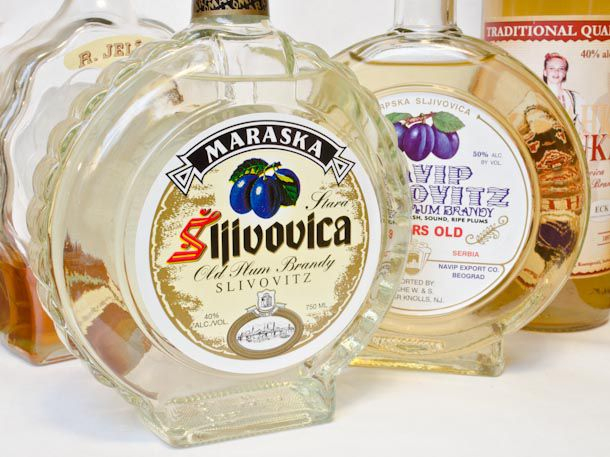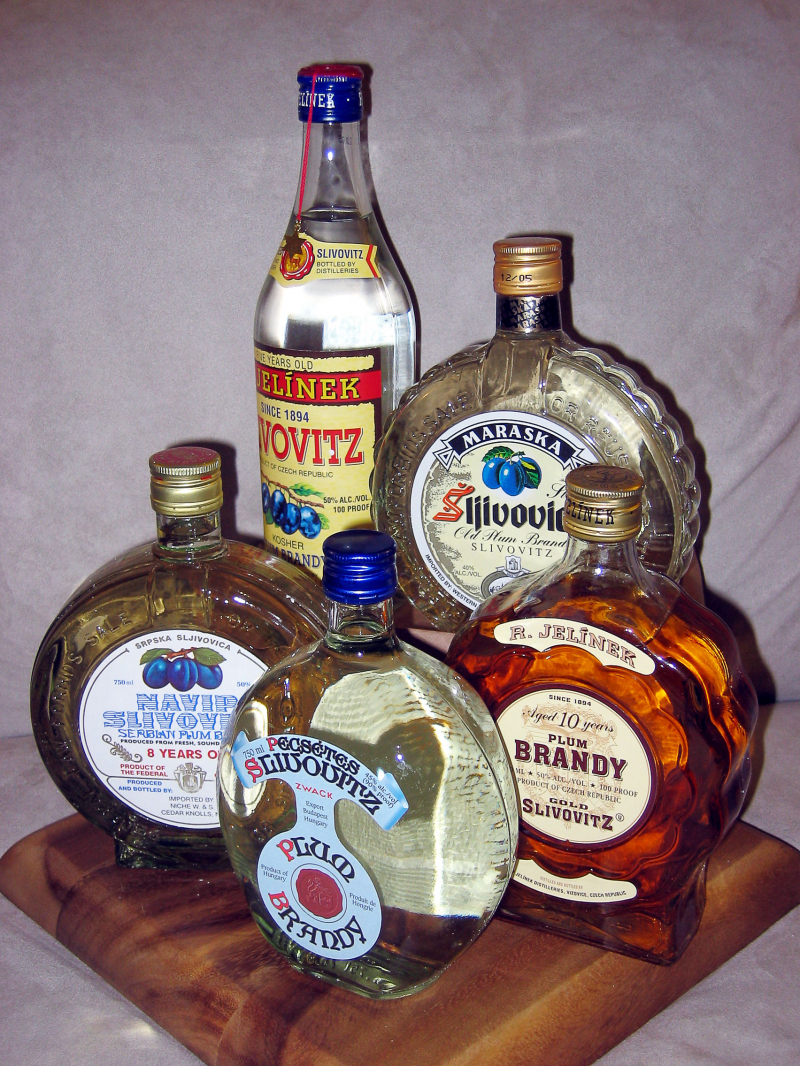Slivovitz
The mountainous region of southern Poland has a long tradition of making slivovitz. Slivovitz, also referred to as plum alcohol, is a fruit brandy prepared from damson plums (or plum brandy). The only permitted base fruit for distillation is Damson plums. The plums may be briefly squeezed or otherwise disturbed prior to manufacture in order to hasten the fermentation process while preserving their pulverized kernels; yeast, starch, and sugar may be added to the juice. After that, the mixture is left to ferment. Depending on the desired final product or the area of production, there may be one or more stages of distillation. Aging is frequently used to bring out the finer flavors of the distillate.
Its color depends on the container in which it is matured: aged in glass will be clear, while aged in a barrel will have a golden-brown tint akin to whiskey. The plum juices give slivovitz its sweet, fruity scents, but the plum kernels that are added during the fermenting process also give it a bitter, herbaceous flavor. (Amygdalin, the main ingredient in bitter almonds, is found in plum pits.) Making your own plum brandy was a good way to use up extra plums, which were plentiful in eastern Europe. Some slivovitz enthusiasts still believe that handmade slivovitz is the best nowadays.
Origin: Poland



















